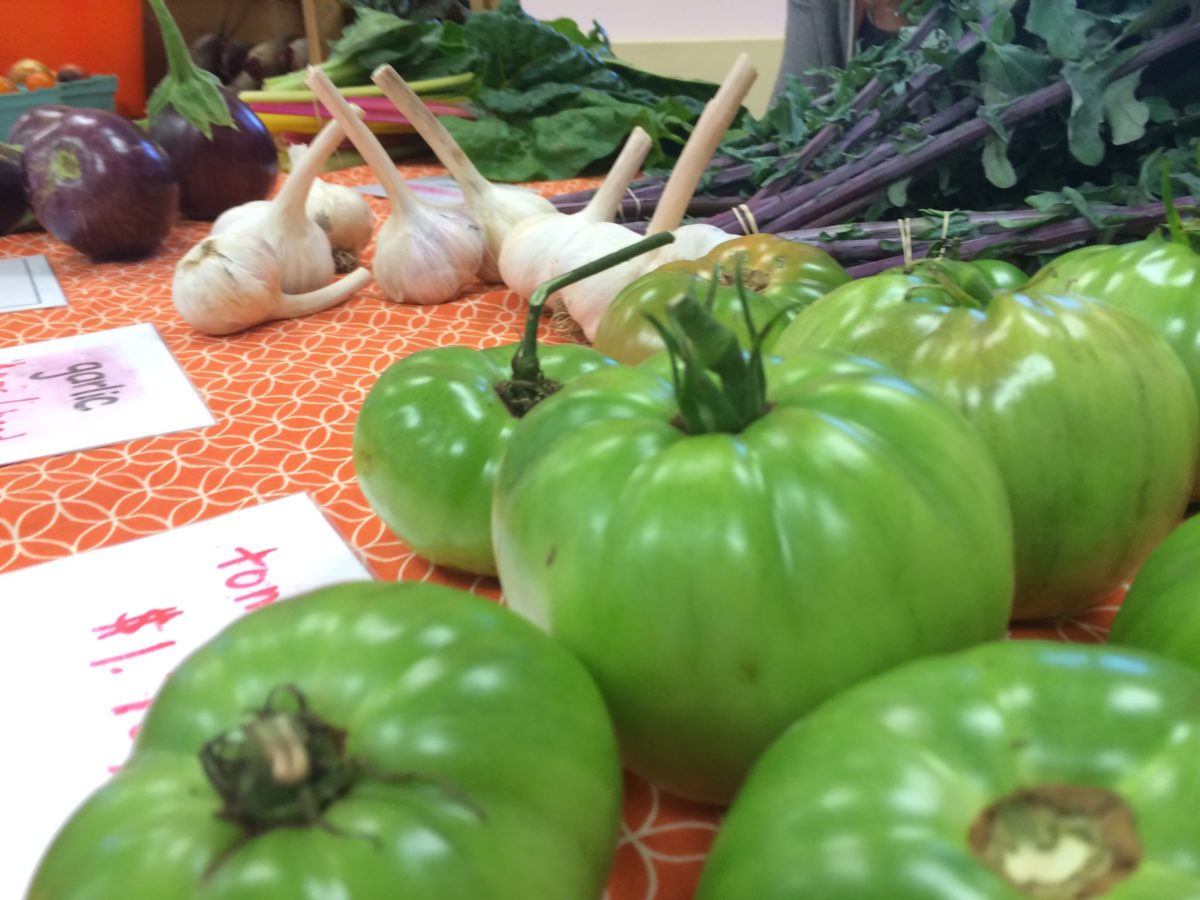
Food Hub, Mobile Market Bring Fresh Food to Community
The burgeoning farm-to-table movement is getting some help from some tech-savvy students at Allegheny College.
Working under the direction of Assistant Professor of Computer Science Janyl Jumadinova, two students — junior Maria Kim and sophomore Jesse Del Greco — are developing an “online food hub,” a website aimed at connecting the community with the region’s farmers. It’s one of the many ways Allegheny faculty and staff are working to educate the public about the availability and benefits of fresh, locally grown food.
Once launched, the still-unnamed site will allow users to search for sellers of specific produce within a selected geographic range. Buyers — limited to restaurants and other bulk purchasers, initially — will be able to place orders online and arrange for pickup or delivery, Jumadinova said. If successful, the hub could expand and offer online buying to the general public.
Every visitor will be able to search for local gardens and pick-your-own farms and learn about events and activities related to local foods and farming.
“The whole goal is to increase access to and availability of fresh, local food,” Jumadinova said.
The site’s searchable database includes nearly 30 participating farms, gardens and farm-to-table restaurants in Crawford County or Edinboro — and that’s just the start.
“Eventually we want to expand to markets as far away as Cleveland, for instance. That’s a big city and that’s a good market for (local) farmers,” Jumadinova said.
As Jumadinova’s computer science students put the finishing touches on the site, communication arts students Madeleine Zimmermann and Madeline Becker are working to design a logo and branding with the help of the Assistant Professor of Communication Arts Julie Wilson. The site could launch as early as spring 2017. When complete, it will be an online space benefiting both farmers and consumers, Del Greco said.
“Farmers will be able to list the produce they have grown, and businesses will instantly be able to connect with the farmers and purchase the produce as needed,” Del Greco said.
The hub builds on many other ongoing efforts Kerstin Martin, director of Allegheny’s Community Wellness Initiative, is leading to increase access to, and availability of, locally grown food.
In 2015, the CWI built a community garden at the Meadville Area Recreation Complex featuring 30 raised beds that residents can rent each season on a sliding scale. Students from Meadville Area Middle School use the garden as part of their curriculum, planting crops and cooking with produce they’ve grown.
“I really see this as being integral to getting people excited about local food, getting kids to think about the implications of local food both for their health and the health of the environment. They’re going to be the consumers of tomorrow,” Martin said of the education component.
This year, Martin took her mission on the road.
Every Wednesday between August and October, she and a few students loaded up her car with the produce picked earlier that day from Allegheny’s Carr Hall garden and headed to Holland Towers, a senior living community in downtown Meadville. Once there, she’d spread out the bounty — tomatoes, kale, peppers — on a table for residents to buy.
The mobile market project drew between 15 and 20 people each week.
“For people who say transportation is a barrier to getting fresh food, this is bringing the food to their neighborhood,” Martin said.
Martin said she plans to continue the mobile market in 2017. The long-term plan is to add more selling sites and to sell food from local farmers, not the Carrden, giving farmers another venue and residents more produce options.
Emma Yates, a 21-year-old senior environmental science major who is doing an independent study on the food hub, said the effort helps educate people and builds a bridge between the campus and the community.
“It’s a really cool way to bring sustainability efforts and local farming to community members,” Yates said.
Holland Towers resident Robin Milstead visited the mobile market each of the six weeks it stopped at the apartment complex, building a friendship with Martin as she shopped for hot peppers and garlic and cherry tomatoes. Milstead doesn’t have a car, so usually relies on friends to give her a ride to the grocery store. Sometimes she takes the bus.
The mobile market makes it easier to eat healthier, she said.
“The produce is really good quality. I like it better than what you can buy at the store,” Milstead said. “I can’t wait until they come back next year.”